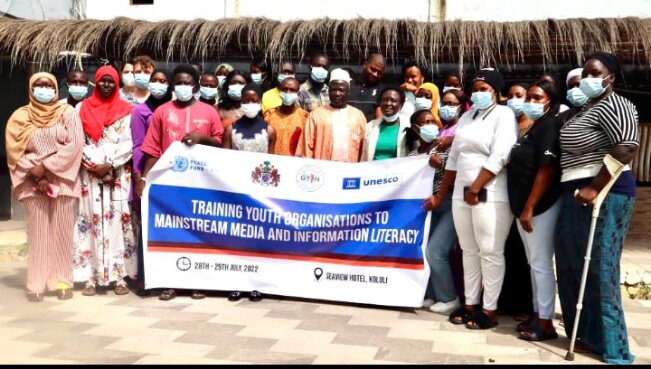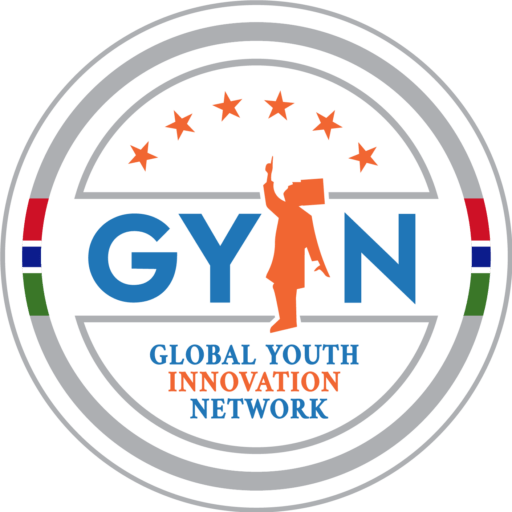
The Gambia government through its Information Minister, Hon. Lamin Queen Jammeh has commended the efforts of UNESCO for training 40 youth leaders of different organisations in the country on Media and Information Literacy (MIL) and its previous trainings.
While speaking at the opening ceremony of the two-day training at the Seaview Garden Hotel in Kololi, Minister Jammeh said it is gratifying to note that UNESCO has consistently been nurturing and promoting MIL in The Gambia as a powerful tool to counter hate speech and fake news, and enhance peacebuilding efforts.
This training, which is bankrolled by the UN Peacebuilding Fund through UNESCO Dakar office and coordinated by GYIN Gambia, is held to support youth organisations to mainstream and integrate MIL into their policies and strategies.
According to the Information Minister, the training has helped the youth leaders to, among other things: search, evaluate, and use the information they need; understand the role and functions of online and offline media and information providers; critically evaluate, authenticate, and verify media content and information; communicate media content and information in an ethical and legal manner, and develop resilience to information disorder.
“The proliferation of misinformation that comes in the wake of the coronavirus pandemic has shown the importance and criticalness of MIL skills,” he observed, noting that across the world, the pandemic comes with a trove of fake health information that impedes individuals’ capacity to make rational and informed decisions about their health and daily life. While citing that this has significantly affected the vaccine update, he singled out that with MIL competency, one could always sieve the chaff from the wind and consume only that which is accurate.
Also speaking on the occasion, the Founder of GYIN Gambia, Mamadou Edrisa Njie explained that this training has targeted 20 youth organisations that were previously trained on MIL in order to build up on their existing basic understanding of MIL.
He noted that acquiring MIL competencies allow individuals to confidently seek, critically evaluate and contribute to information online and offline, adding that Media and information competencies afford youth the knowhow to participate ethically in public debate, and face and counter hate speech, disinformation as well as misinformation.
“The idea is to get people that have authority in their organisations to participate in this training is to be able to push for the integration and mainstreaming of issues of MIL into their activities,” he explained.
Giving a rundown of this initiative, he highlighted that GYIN Gambia will guide and coach at least at 10 youth organizations to conduct step-down training and integrate MIL into their policies and strategies.
However, Mr Njie noted that the selection of these 10 youth organisations will be based on their participation, commitment, and how effective they were able to integrate MIL into their activities.
He continued: “Selected organisations will receive financial support on how to implement MIL activities into to their programs. GYIN Gambia will work closely with these 10 youth organizations to design a training module to deliver step-down training in their respective communities. For quality assurance, one of GYIN Gambia MIL trainers will deliver the step-down training together with one or two trainers from each of the respective organisations.”
After the regional step-down training are delivered by the youth organisations, he explained that GYIN Gambia will hold a daylong review workshop with the beneficiary youth organisations to get their personal feedback and lessons learned on the implementation of their MIL-integrated activities.
Mr Njie concluded that the report from this session would be useful for both UNESCO and GYIN Gambia in the delivery of similar interventions in the future.
